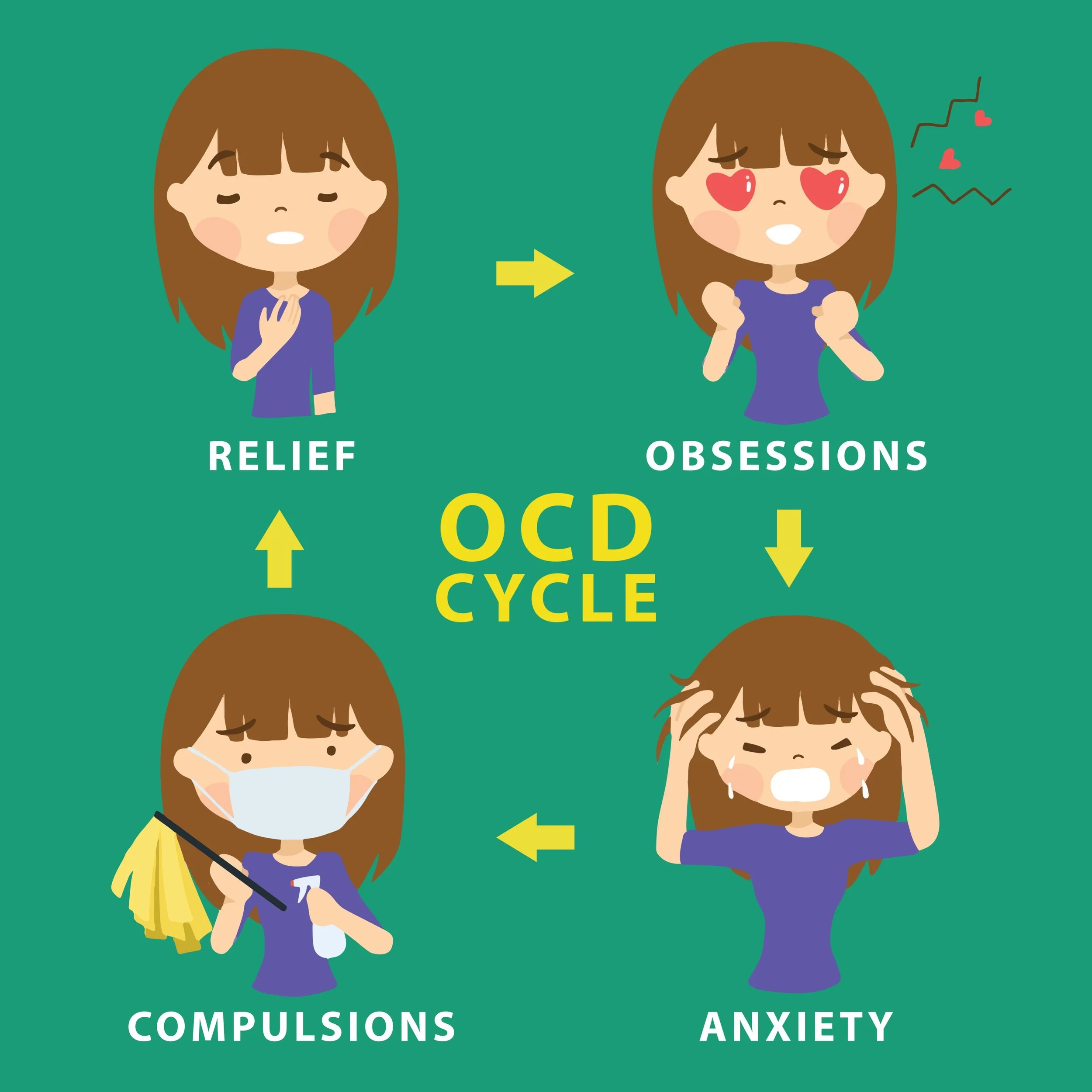Exposure and Response Prevention (ERP) Therapy for OCD: A Simple Guide
When you or a family member are struggling with Obsessive-Compulsive Disorder (OCD), it can feel overwhelming and complicated. The intrusive questions, the demanding rituals, and the intense fears seem so unique and different from what a "normal" person experiences. This can be disorienting not only for the person with obsessions but also for the family and friends trying to help.
If you are looking for OCD therapy in Mississippi, there is a clear, evidence-based path forward: Exposure and Response Prevention (ERP) therapy. In this article, I want to make ERP simple and practical so you can understand how it works and why it is the most effective treatment for OCD.
When you're in a state of confusion and distress, you need a plan that is clearly defined. Your intuition will often get you in trouble, so you must practice effective actions that override that intuition.
I grew up in Central Mississippi where we have a lot of Whitetail deer. My dad gave me a simple rule: "Just hit the deer." His goal was to have this so deeply ingrained in me that I would not instinctively swerve and run my car into a ditch when a deer inevitably ran out. Instead, I would go against my intuition, hit the deer, and accept those consequences rather than something much worse.
This is exactly how I want you to approach this simple, counterintuitive plan for overcoming OCD. If you are struggling with OCD, I encourage you to print it off, put it on your wall, and memorize it. The freedom you could find from the endless cycle of worries and attempts to answer them could be life-changing.
This approach is informed by my experience as both an immediate family member of several people with OCD and a therapist who has treated many clients. I have also trained with leading OCD experts, including Dr. Eric Storch at the International OCD Foundation, Dr. Michael J. Greenberg, and Dr. Aureen Wagner.
How Does OCD Work? The Obsessive-Compulsive Cycle
OCD is a cycle that keeps people stuck. No matter your particular type of OCD, the pattern is the same:
Obsession: An unwanted thought, mental image, question, or situation triggers a deeply uncomfortable feeling, such as fear, disgust, anxiety, or regret. (The event can be “real” or magical. It doesn’t matter)
Compulsion: You perform a ritualistic behavior to make that bad feeling go away. Compulsions can be physical (like checking, re-checking, or avoiding objects) or mental (like repetitive praying, counting, or seeking reassurance).
The more you do the compulsion, the more the cycle strengthens.
What Makes OCD Worse? Avoiding Triggers
OCD thrives on two things that you must cut out to end the cycle. To the degree that you stop these, you will stop the negative effects of OCD:
Doing Compulsions: Every time you give in to a compulsion, you are telling your brain that the obsession was a real threat. This reinforces the cycle and makes it harder to resist next time.
Avoiding Triggers: When you stay away from situations, people, or places that might remind you of your bad thoughts and feelings, you miss an opportunity to learn that your fears are not real.
How is OCD Treated? The Power of Exposure
OCD gets better as you learn to move toward triggers instead of away from them. This is the essence of Exposure and Response Prevention.
Exposure: We intentionally expose ourselves to the triggers and situations we would normally avoid. The goal is to face the source of our anxiety in a controlled way.
Response Prevention: The key is to resist doing your compulsions. When the anxiety rises, you learn to tolerate it without engaging in your usual rituals.
Why do exposures work?
You learn that your feared outcome does not occur, even when you drop your guard.
You learn that you can tolerate and survive the anxiety.
Your distress actually goes down, not up, as you sit with the uncomfortable feelings.
Your rational mind returns, and your doubts and fears begin to quiet down.
Can OCD Go Away? Understanding Remission
OCD can absolutely go into remission. Like remission for any other disease, you have to remain vigilant for its signs. While it may no longer be an issue in your daily life, you will be more aware of its potential signs and symptoms than the average person.
The keys to remission are:
Thoroughly understanding your OCD.
Actively engaging in ERP to eliminate compulsions and avoidance behaviors.
Learning from your experience and never returning to your old ways of coping.
With the right help, you can find freedom from the endless loop of worry and regain control over your life.
About Tyler Slay, LPC
Tyler Slay, LPC, is a licensed professional counselor based in Madison, Mississippi, who provides therapy across the state both in person and through telehealth. He specializes in the treatment of Obsessive-Compulsive Disorder (OCD), anxiety, and trauma, and offers Christian counseling in Mississippi for clients who want therapy to align with their faith.
Tyler has completed advanced training through the International OCD Foundation and uses evidence-based treatments including Exposure and Response Prevention (ERP) therapy, Cognitive Behavioral Therapy (CBT), and Acceptance and Commitment Therapy (ACT). He has experience working with children, teens, and adults, as well as clients dealing with perfectionism, family conflict, pornography struggles, depression, autism (Asperger’s), social skills, PANS/PANDAS, body dysmorphic disorder (BDD), and body-focused repetitive behaviors (BFRBs).
OCD Therapy in Mississippi
If you or your loved one is searching for OCD therapy in Mississippi or ERP treatment near Madison, Brandon, Flowood, Jackson, or Canton, or are interested in faith-based counseling, Tyler would be honored to walk with you toward healing.
Click here for more information.


